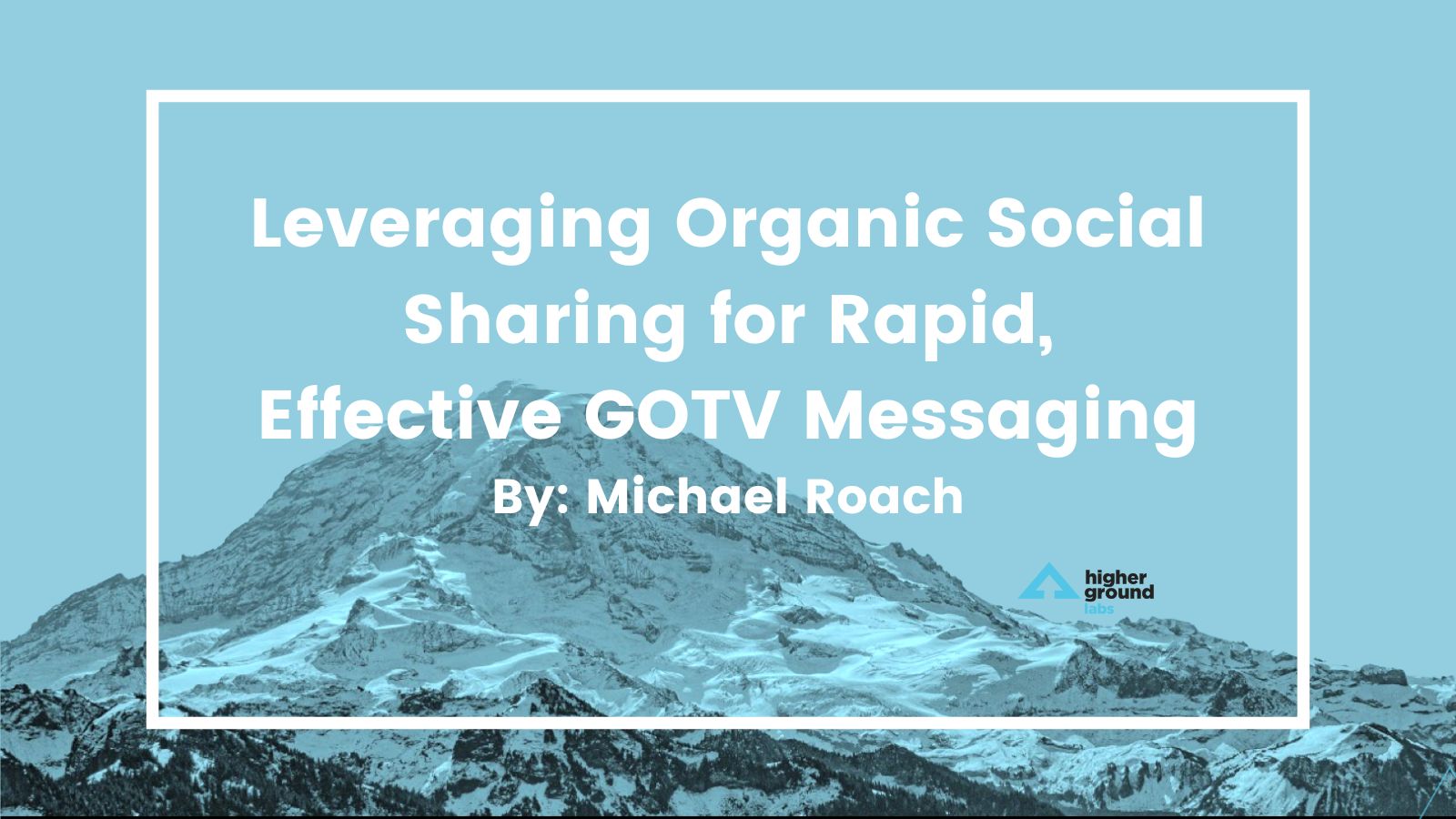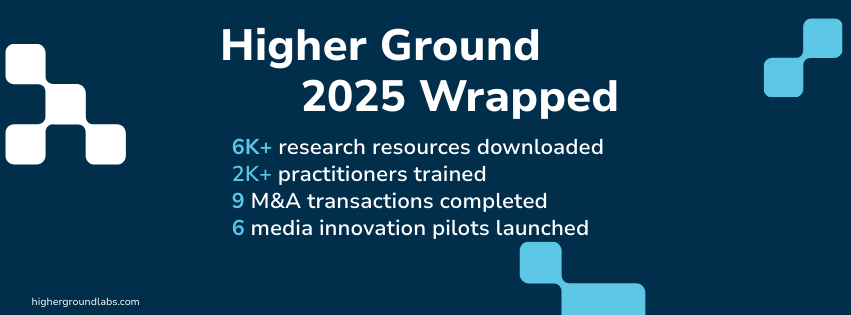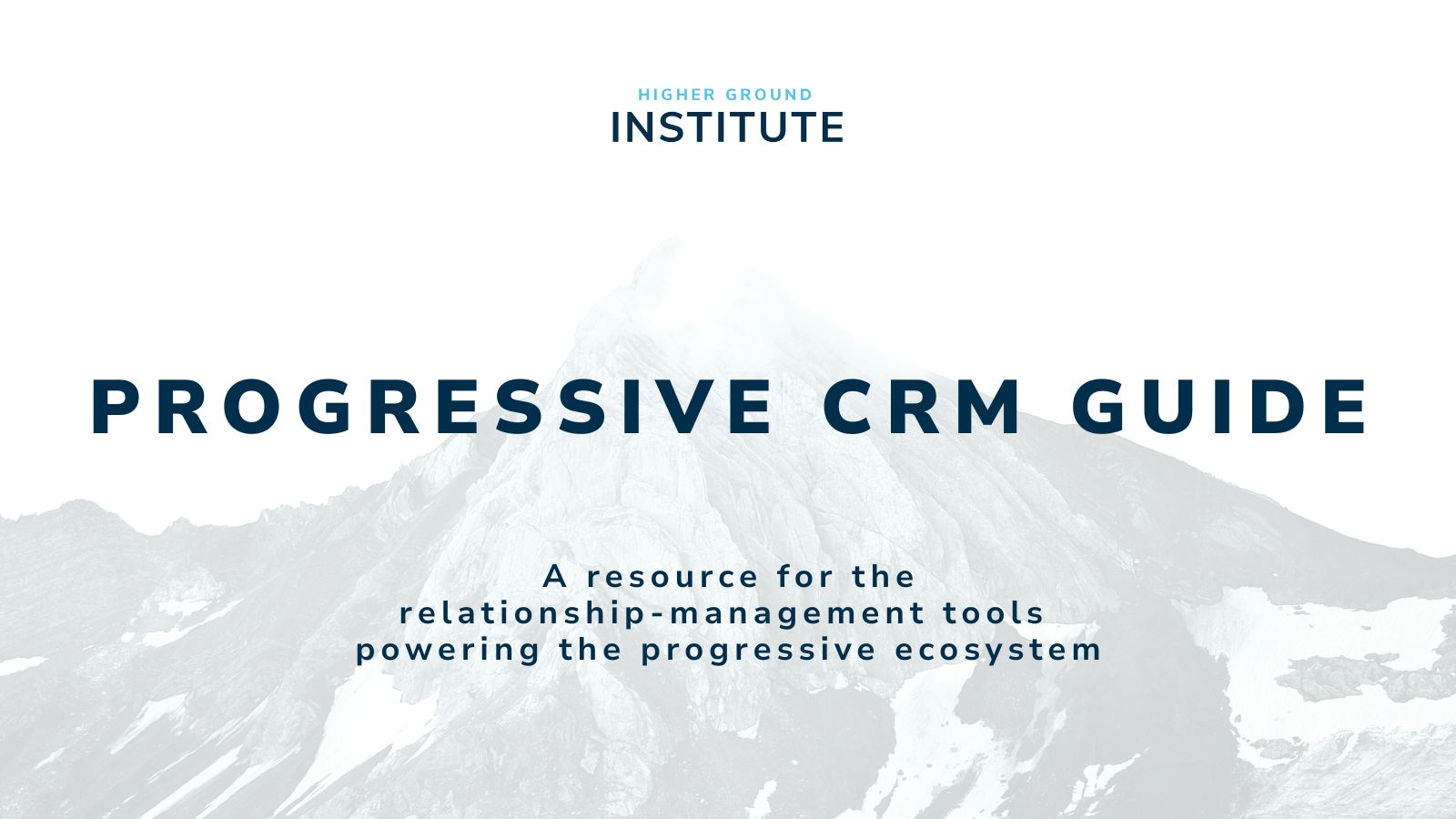Written by: Michael Roach, Content & Communications Lead at SoSha
As voter registration periods close and early voting continues, GOTV is the main priority, making it critically important for campaigns and organizations to do everything possible to reach, engage, and mobilize prospective voters.
As we know from the last three election cycles, turnout is the most important thing in an election this close, and the value of generating enthusiasm and momentum with supporters and voters going towards election day can truly be the deciding factor for a Kamala Harris Presidency on January 20, 2025.
Traditionally, whether from campaigns or allied organizations, digital GOTV messaging campaigns relied heavily on paid advertising to reach potential voters with polling and registration information, and specific mobilization messaging.
But while advertising has historically been a powerful tool in political campaigns, it’s unclear whether increased ad spend online translates into greater registrations and engagement with potential voters. Trust levels in political content online are low, engagement rates are lower, and there are increasing platform policy and algorithmic barriers being erected by the social media platforms themselves.
The way people interact and receive information online is changing, and we must respond with innovative solutions that meet the demands of today’s landscape.
This is where organic social sharing comes into play. Organic social sharing (also known as organic social media, or organic social amplification) is the use of word-of-mouth, community-driven, relational sharing on social media to deliver messaging authentically. Organic social sharing bypasses algorithmic and social media platform policy restrictions on political content by shifting the emphasis from campaign or organizational sharing to supporter and community sharing, bringing a kind of digital canvassing to online communities to better engage supporters and voters.
People are increasingly utilizing social media not only to consume news but to interact in social groups online, from consumer groups to community organizations and neighborhood association groups. These are spaces where content shared from branded accounts cannot reach easily, and where advertising, while great at targeting individuals, falls short in generating the kind of engagement that organically shared content can.
Campaigns and progressive advocacy groups looking to effectively utilize social media to reach potential voters need to capitalize on the voices of their biggest supporters and communities online. They can do this by lowering the barriers for supporters to share GOTV information online.
There are a few key strategies to accomplish this through organic social sharing, including:
- Pre-assembling social media messaging and assets that supporters can customize and share with their networks online;
- Optimizing a variety of messaging and assets to suit the multitude of different social media platforms potential voters engage with;
- Tracking the engagement that supporter-shared content generates and adjusting messaging to maximize success accordingly.
While all this can be done manually, there are organic social sharing tools, like SoSha, that enable all these strategies to be done within minutes on one centralized platform, making it that much easier and quicker to deploy an effective organic online GOTV campaign during the time crunch leading to the election.
This year has already seen many progressive advocacy groups and campaigns embrace organic social amplification strategies, from the Democratic National Committee to a wide range of nonprofits and political action committees active in the battleground states like Demcast, FieldTeam 6, and Red Wine & Blue, deploying organic social sharing toolkits for supporters to share everything from local registration deadline information to post-rally multimedia.
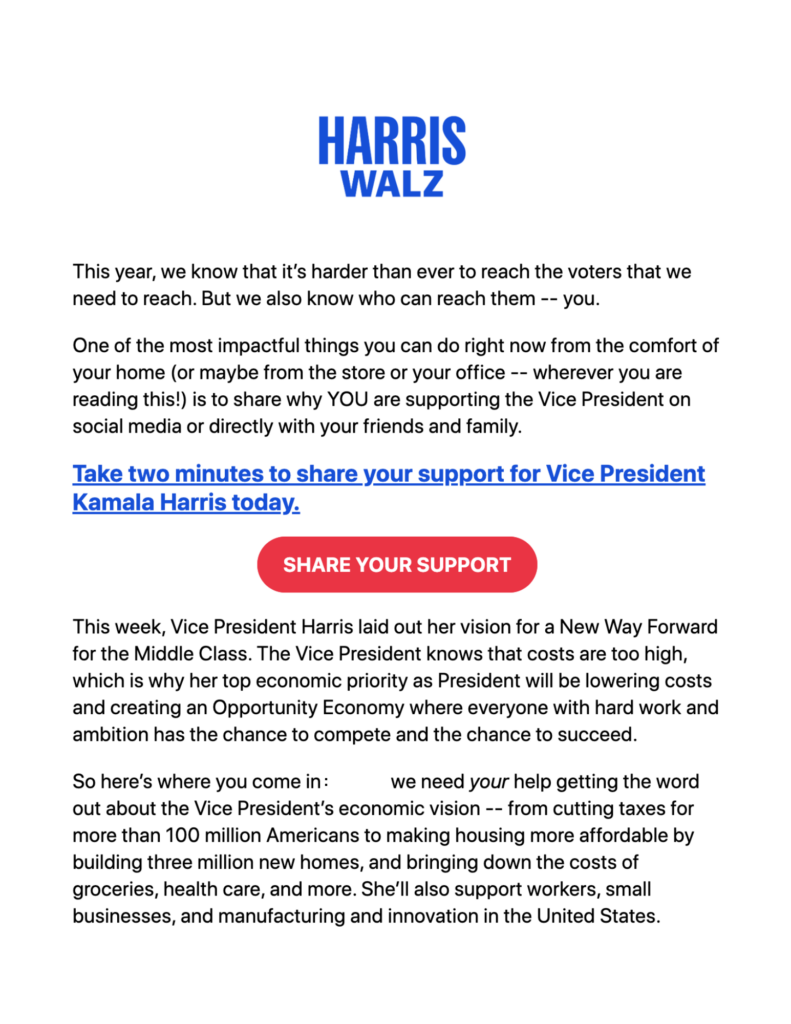
The Harris Walz campaign sent out this email messaging to thousands of supporters, framing the issue to amplify Harris’s messaging on the economy and placing numerous calls to action for the reader to become a trusted messenger.
The Harris/Walz campaign has provided some of the best examples this year of the impact of sustained, widespread supporter engagement using organic social media. For example, in a recently released email to supporters, the campaign encouraged readers to share to their networks on social media the reasons why they’re supporting the Harris campaign.
The email effectively harnesses organic social amplification in two ways: (1) identifying the reader as a trusted messenger, and engaging them with a simple, identifiable mission, then (2) providing easy-to-share resources that reduce the time and effort barrier for sympathetic, yet busy supporters to take action to spread the message with their online networks.
The results of these organic social amplification campaigns have already been remarkable. Between September 1st and October 22nd, SoSha saw more than 15,000 posts shared by supporters located in the seven key battleground states (i.e., Michigan, Wisconsin, Pennsylvania, Arizona, North Carolina, Nevada, and Georgia), from more than 60 SoSha toolkits created by Democratic campaigns and allied organizations.
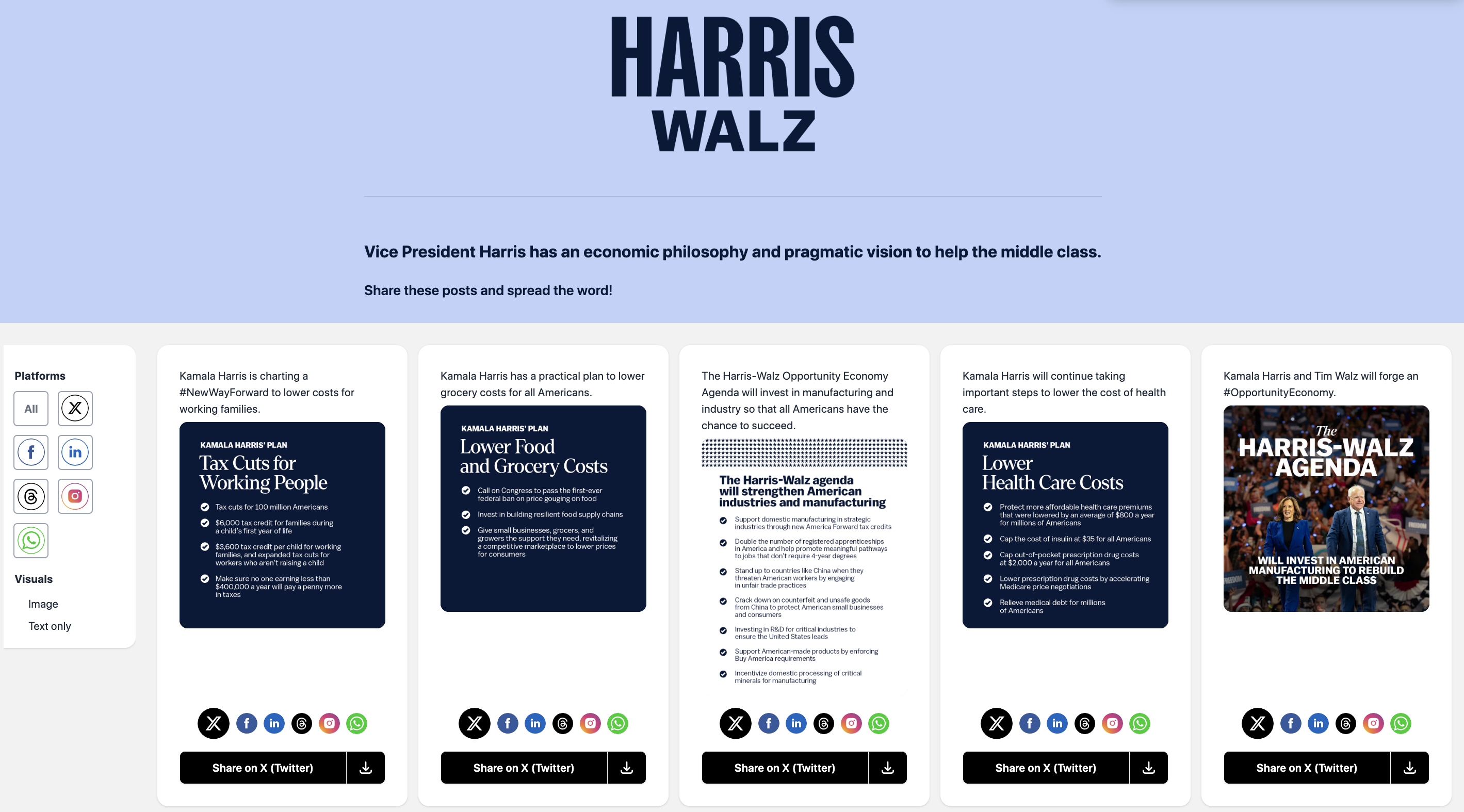
The Harris Walz campaign provided pre-drafted copy and graphics that were easily customizable and shareable for supporters. The posts also allowed for sharing to a multitude of preferred social media platforms.
While these posts are usually a mix of standard copy, streamlined images and graphics, and links to additional resources, they have facilitated Democratic-aligned organizations and campaigns to make massive inroads with supporter engagement, especially in battleground states where organic sharing on social media provides a welcome alternative to the deluge of advertisements. In short, organizations deploying social toolkits for GOTV are displaying success in empowering trusted messengers on the ground to engage with their local networks online.
With time running out, progressive advocacy organizations have a crucial opportunity to make a tangible impact this election cycle. To drive an effective online GOTV effort, campaigns must equip their supporters with the right tools to reach potential voters meaningfully and organically. By fostering authentic, people-powered messaging, organic social sharing can become a powerful vehicle for engagement, helping supporters connect with voters in ways that resonate and inspire action.
